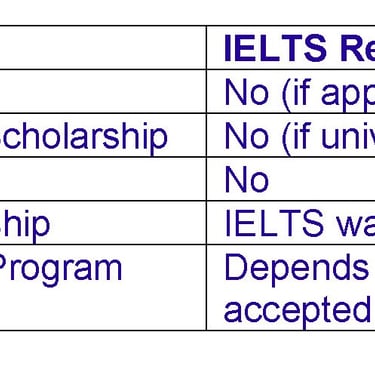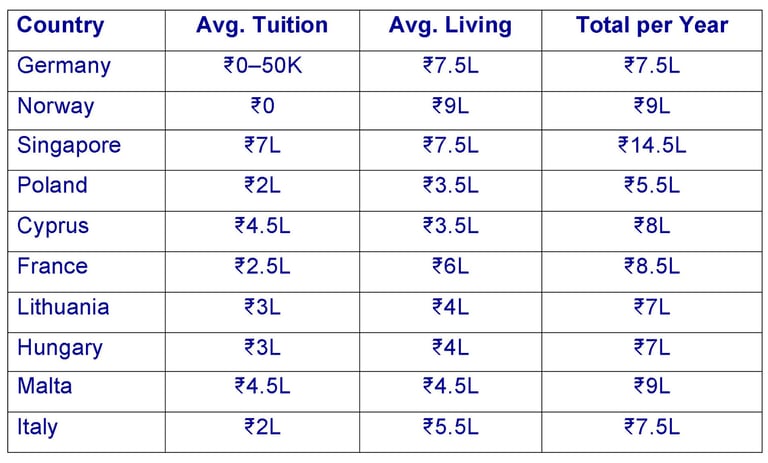✉ shreeconsultancyjsb@gmail.com ✆ Ph. No.: +91 78781-47589 , +91 97828-06464

Best Affordable Countries to Study Abroad for Indian Students
Looking for the best affordable countries to study abroad for Indian students? Here are the top 10 low-cost destinations with great education and budget-friendly living.
Best Affordable Countries to Study Abroad for Indian Students – Top 10 Budget-Friendly Picks
Studying abroad is a life-changing goal for many Indian students, but high tuition fees and living costs can be limiting. With rising expenses and the Indian rupee’s value against foreign currencies, finding budget-friendly education is critical.
Affordable study destinations give Indian students the chance to gain global exposure, earn quality degrees, and enjoy a good standard of living—without incurring major student debt.
Key Factors That Define Affordability
Before choosing a destination, students usually assess:
Tuition Fees – Public vs. Private institution costs
Living Expenses – Rent, food, and transport
Part-Time Work – Legal ability to work and earn income
Scholarship Opportunities – Government or university aid
Top 10 Affordable Countries to Study Abroad for Indian Students
1. Germany
Tuition: Zero tuition at most public universities
Living Cost: ₹7–8 lakhs/year
Why it's great: High-quality education, low fees, and extensive scholarships.
2. Norway
Tuition: Free in public universities for all students
Living Cost: ₹9–10 lakhs/year
Why it's great: World-class education and English-taught programs.
3. Singapore
Tuition: ₹6–9 lakhs/year for international undergraduates
Living Cost: ₹7–8 lakhs/year
Why it's great: Asia’s education hub with top universities like NUS and NTU, plus strong post-study job market
4. Poland
Tuition: ₹1.5–3 lakhs/year
Living Cost: ₹3–4 lakhs/year
Why it's great: Affordable education, great cities, and technical programs.
5. Cyprus
Tuition: ₹3–6 lakhs/year
Living Cost: ₹3–4 lakhs/year
Why it's great: Safe country, English-taught degrees, and part-time work allowed for students.
6. France
Tuition: ₹2–3 lakhs/year at public universities
Living Cost: ₹6–7 lakhs/year
Why it's great: Prestigious institutions, vibrant student life, and French government scholarships.
7. Lithuania
Tuition: ₹2–4 lakhs/year
Living Cost: ₹3–5 lakhs/year
Why it's great: Fast-growing tech and innovation sector, English-medium instruction, and high visa success rate.
8. Hungary
Tuition: ₹2–4 lakhs/year
Living Cost: ₹3–5 lakhs/year
Why it's great: High-quality STEM and arts programs, plus generous scholarships like Stipendium Hungaricum.
9. Malta
Tuition: ₹3.5–6 lakhs/year
Living Cost: ₹4–5 lakhs/year
Why it's great: English-speaking country, safe environment, and strong focus on tourism and tech education
10. Italy
Tuition: ₹1–3 lakhs/year
Living Cost: ₹5–6 lakhs/year
Why it's great: Affordable public education with rich cultural heritage and EU benefits
Best Degrees to Pursue in Affordable Countries
Engineering and Tech – Germany, Lithuania, Poland
Business & Management – France, Malta, Cyprus
Tourism and Hospitality – Malta, Italy, Cyprus
Health Sciences – Hungary, Lithuania
Computer Science/Data Science – Singapore, Germany
Scholarships Available for Indian Students
Here are some top scholarship opportunities:
Cost Comparison Table – Tuition & Living (INR)
How to Apply for These Universities
Applying to affordable universities abroad can be simple if you follow these steps:
1. Research and Shortlist
Use trusted platforms like:
DAAD.de for Germany
CampusFrance.org for France
StudyinPoland.pl for Poland
Choose programs based on course fit, affordability, and language of instruction.
2. Prepare Documents
Typical requirements:
Academic transcripts
Statement of Purpose (SOP)
Letters of Recommendation
Passport copy
Proof of English proficiency (MOI or IELTS alternatives if needed)
3. Submit Applications
Apply via the university portal or country-specific systems like UCAS (UK) or Uni-Assist (Germany). Ensure your documents are complete and properly translated if required.
4. Apply for Scholarships
Many universities offer automatic consideration. But for external scholarships (like DAAD or Eiffel), you need to apply separately—often with additional essays and documents.
5. Visa Application
Once you receive your offer letter, apply for a student visa. Ensure you have:
Proof of admission
Proof of funds
Accommodation letter
Health insurance
Pros and Cons of Studying in Low-Cost Countries
Pros:
Affordable Education: Less or no tuition fees in some countries.
Work Rights: Many allow part-time work during studies.
Cultural Exposure: Experience new environments at a budget.
Scholarships: Accessible to students from middle-income families.
Cons:
Language Barrier: In some places, locals may not speak English fluently.
Limited Job Market: Post-study job options can be limited depending on the country.
Weather Adjustments: Countries like Norway and Germany have colder climates.
Real Stories: Indian Students Thriving Abroad on a Budget
Ankit Mehra (Poland)
"My total annual expense is just ₹5.5 lakhs. I study IT and live in a student dorm in Warsaw. Great education without stress."
Priya Suresh (Germany)
"I pay zero tuition and got a part-time job within two months. I live in shared housing and save money every month."
Farhan Khan (Malaysia)
"English-speaking campus, Indian food nearby, and low tuition. I couldn’t ask for more."
FAQs About Studying Abroad Affordably
Q1: Which country is the cheapest for Indian students to study abroad?
A: Germany and Norway offer nearly free tuition and are considered the most affordable overall.
Q2: Can I study abroad without IELTS?
A: Yes! Countries like Germany, Norway, and Malaysia often accept MOI (Medium of Instruction) certificates.
Q3: How much does it cost to study abroad on a budget?
A: On average, ₹5–8 lakhs per year, depending on the country and lifestyle.
Q4: Are scholarships enough to cover all expenses?
A: Some fully funded scholarships cover tuition, living, and travel. But many only reduce tuition fees partially.
Q5: Can I work part-time while studying abroad?
A: Yes, most countries allow 15–20 hours/week during semesters.
Q6: Which country is best for engineering students on a budget?
A: Germany, Poland, and Czech Republic offer excellent engineering programs at low costs.




